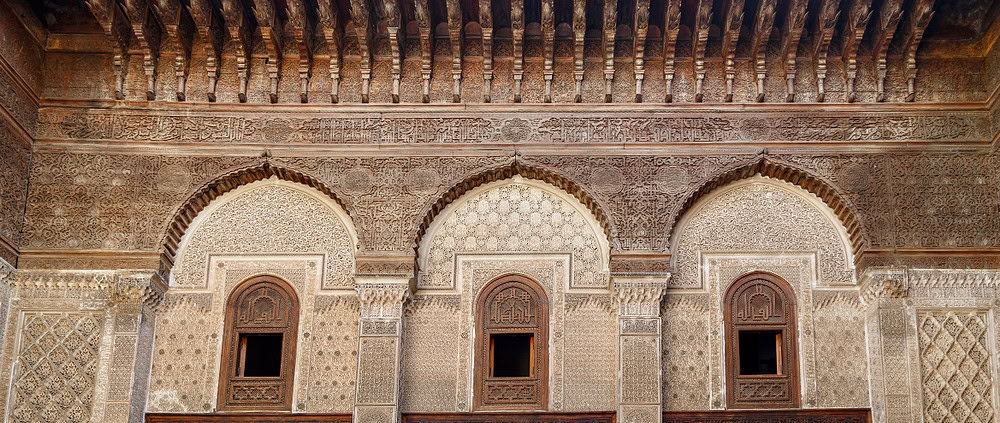What Is the Definition of Fiqh and Its Importance in Islam?
Answered by Shaykh Dr. Muhammad Abu Bakr Badhib
Question
What is the definition of Fiqh and its importance in Islam?
Answer
In the name of Allah, and all praise is due to Allah, and blessings and peace be upon our master Muhammad, the Messenger of Allah, his Family, his Companions, and those who follow him.
Fiqh is understanding, and in Islam, it specifically refers to understanding the grand objectives of the religion and knowing the laws of Allah (Most High) and His Shari‘a, which He revealed through His prophets. In this regard, Fiqh is a fundamental principle of Islam.
Definition
In detail, Fiqh, as defined by scholars, is
“العلم بالأحكام الشرعية العملية المكتسب من أدلتها التفصيلية.”
“The knowledge of practical legal rulings derived from their detailed evidence.”
Thus, the science of Fiqh, by this definition, is the tool through which the laws legislated by Allah (Most High) for His servants are taken from sources of legislation, which are the Quran, Sunna, Consensus, and Analogy. Knowing how to derive and understand these laws is Fiqh in the religion of Allah.
Importance
Due to the great importance of Fiqh and the establishment of knowledge of the Shari‘a upon it, it has been mentioned explicitly in the Quran and Sunna. Allah (Most High) says:
“Only a party from each group should march forth, leaving the rest to gain religious knowledge.” [Quran, 9:122]
The Prophet (Allah bless him and give him peace) said:
“Whomsoever Allah intends good for; He gives him an understanding of the religion.” [Bukhari]
The meaning of “gives him an understanding of the religion” is that He makes him knowledgeable about the laws of Shari‘a, insightful and discerning; thus, his heart becomes a spring of knowledge, extracting numerous meanings from brief words. [Turibshiti, al-Muyassar fi Sharh Masabih al-Sunna]
In another narration by al-Mustamli, it is stated: “He makes him understand” with a doubled and broken “ha” followed by “mim” (يفهِّمه). Fiqh is understanding, as Allah (Most High) states:
“They can hardly comprehend anything!” [Quran, 4:78], meaning they do not understand. The intent here is to understand the legal rulings. [Shinqiti, Kawthar al-Ma‘ani]
In another hadith: “Nothing is a better form of worship to Allah than understanding in religion,” reported by al-Bayhaqi from the hadith of Ibn ‘Umar and mentioned by Suyuti in (al-Jami‘ al-Saghir), it is explained that “With understanding in religion, a servant knows his Lord, and whoever knows his Lord knows himself. And because the worship of an ignorant person does not weigh as much in the balance as the worship of a jurist in the book and the Sunna, not praising based on people’s derogatory comments as commonly known among people. It encourages striving for understanding in religion.” [San‘ani, al-Tanwir Sharh Jami‘ al-Saghir]
Thus, having known what has been previously stated, we understand the importance of Fiqh and its status within the religion. One who is keen on his religion and hereafter should not delay in seeking knowledge and understanding of religion.
And Allah is the facilitator.
[Shaykh] Dr. Muhammad Abu Bakr Badhib
Shaykh Dr Muhammad Abu Bakr Badhib is a prominent Islamic scholar from Yemen born in Shibam, Hadhramaut, in 1976. He received his degree in Shari‘a from Al-Ahqaf University, a master’s degree from the Islamic University of Beirut, and a PhD in Usul al-Din from Aligarh Muslim University (AMU).
He studied under great scholars such as Shaykh al-Habib Ahmad Mashhur al-Haddad, Shaykh Fadl Ba‘ fadl, Habib Salim al-Shatiri, Habib Ali Mashhur bin Hafeez, and others. He has served as the Director of Publications at Dar al-Fiqh, the former Deputy Director of Cultural Relations at Al-Ahqaf University, a former Assistant for Employee Affairs at Atiyah Iron Company, a researcher at the Sunna Center affiliated with the Dallah al-Baraka Foundation, and a researcher at Al-Furqan Foundation’s Makka al-Mukarrama and Madina al-Munawwara Encyclopedia branch.
Currently, he is a researcher at Al-Furqan Foundation’s Makka al-Mukarrama and Madina al-Munawwara Encyclopedia branch, teaches traditionally through the Ijaza system at Dar al-Fuqaha in Turkey, supervises the Arabic department at Nur al-Huda International Institute (SeekersGuidance), and is a member of the Board of Trustees of the Manuscript House in Istanbul.
His works include “The Efforts of Hadhramaut Jurists in Serving the Shafi‘i School,” “Contributions of Hadhramaut Scholars in Spreading Islam and its Sciences in India,” “Hada’iq al-Na‘im in Shafi‘i Fiqh,” in addition to verifying several books in Fiqh, history, the art of biographies, and Asanid (chains of narration).
